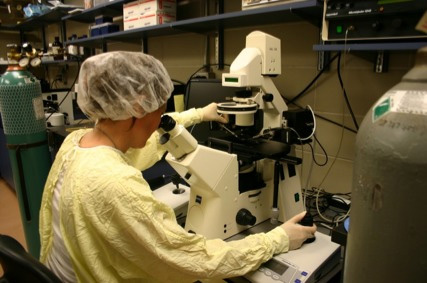
For years, clinicians have been faced with the problem that breast cancer cannot be treated with a one-size-fits-all approach. Now, researchers at McGill have discovered a gene signature that can accurately predict which breast cancer patients are at risk of relapse, thereby sparing those who are not from the burdens associated with unnecessary treatment.
The study was conducted by researchers from McGill University’s Rosalind and Morris Goodman Cancer Research Centre (GCRC), the Research Institute of the McGill University Health Centre (RI MUHC), the Dana–Farber Cancer Institute and Harvard Medical School.
“Since many treatments are associated with short- and long-term complications including premature menopause, cardiotoxicity and the development of secondary cancers, risks must be balanced against the potential benefit for each patient to avoid unnecessary suffering, needless expense and added burdens on the health-care system,” explains Dr. Alain Nepveu, GCRC and RI MUHC researcher and co-author of the study.
—
RELATED COVERAGE:
Montreal Gazette
SIFY News
Emax Health
Health Jockey
French tribune

For years, clinicians have been faced with the problem that breast cancer cannot be treated with a one-size-fits-all approach. Now, researchers at McGill have discovered a gene signature that can accurately predict which breast cancer patients are at risk of relapse, thereby sparing those who are not from the burdens associated with unnecessary treatment.
The study was conducted by researchers from McGill University’s Rosalind and Morris Goodman Cancer Research Centre (GCRC), the Research Institute of the McGill University Health Centre (RI MUHC), the Dana–Farber Cancer Institute and Harvard Medical School.
“Since many treatments are associated with short- and long-term complications including premature menopause, cardiotoxicity and the development of secondary cancers, risks must be balanced against the potential benefit for each patient to avoid unnecessary suffering, needless expense and added burdens on the health-care system,” explains Dr. Alain Nepveu, GCRC and RI MUHC researcher and co-author of the study.
—
RELATED COVERAGE:
Montreal Gazette
SIFY News
Emax Health
Health Jockey
French tribune
